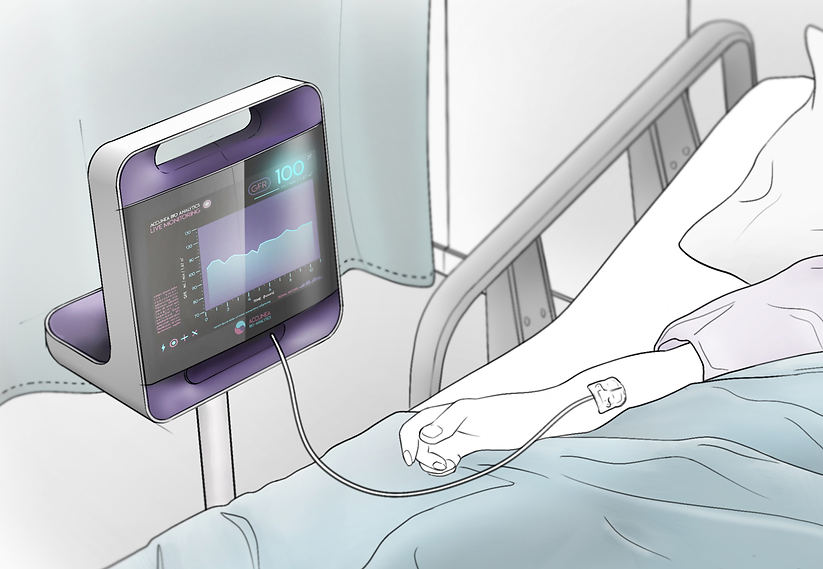
Accunea's Kidney Transplants Innovation
In a significant advancement for the field of organ transplantation, the Microfluidics Innovation Hub (MIH) is proud to announce a pioneering collaboration with Accunea. This initiative marks a pivotal moment in our endeavor to push the boundaries of healthcare through the integration of innovative microfluidics technology.
The Science Behind Accunea's Innovation
At the heart of Accunea's revolutionary approach is the development of a novel monitoring device capable of providing real-time, objective data on the viability of kidneys from deceased donors. This technology leverages advanced microfluidics and sensor developments to measure critical biomarkers indicative of organ health.
Microfluidics, the science of manipulating and controlling fluids on a sub-millilitre scale, is crucial for this application. It allows for the precise handling of small volumes of biological fluids, enabling the detection of biomarkers with high sensitivity and specificity. Accunea's device integrates this technology with electrochemical sensors developed by the project's partners, offering a groundbreaking solution for assessing kidney viability.
These sensors are designed to detect specific substances in the organ perfusion fluid, such as lactate, which can indicate the level of metabolic activity within the kidney. A high lactate level may suggest that the organ is not functioning optimally, providing surgeons with vital information that can influence the decision to transplant.
Enhancing Organ Utilization with Precise Data
The innovative use of microfluidics and sensor technology in Accunea's device has the potential to transform kidney transplantation. By providing accurate and timely information about the organ's condition, it can help increase the utilization of kidneys that might otherwise be deemed unsuitable for transplantation. This is particularly important in the context of the current organ shortage crisis, where maximizing the use of available organs can save more lives.
Collaborative Effort for a Noble Cause
The #MIHfamily, including leading experts from BiFlow Systems GmbH, Micronit, and Joanneum Research, plays a crucial role in this endeavor. Their collective expertise in microfluidics, sensor development, and system integration is instrumental in bringing Accunea's vision to life.
BiFlow Systems GmbH is leading the charge on the microfluidic cartridge's technical management and development, ensuring that the device can accurately and efficiently process biological fluids.
Micronit is developing the microfluidic adapter, a critical component that ensures the cartridge's compatibility with existing medical equipment.
Joanneum Research is focused on optimizing the fluidic-sensor interface through simulations, enhancing the device's reliability and accuracy in real-world settings.
Looking Forward
As we progress with Accunea, our goal extends beyond technological achievement; we aim to make a meaningful impact on the lives of individuals awaiting transplants. The integration of Accunea's device into clinical practice promises not only to enhance the success rates of kidney transplants but also to inspire further innovations in the use of microfluidics in medicine.




Comentarios